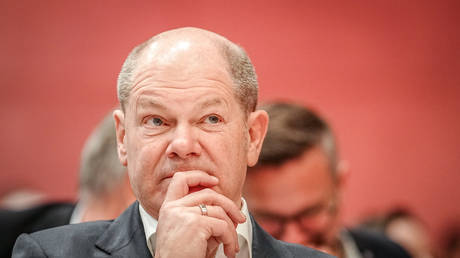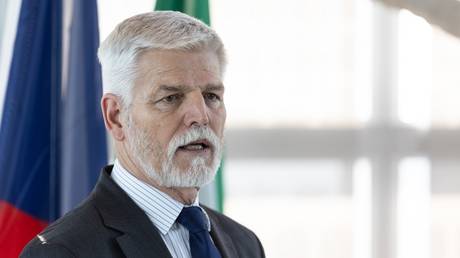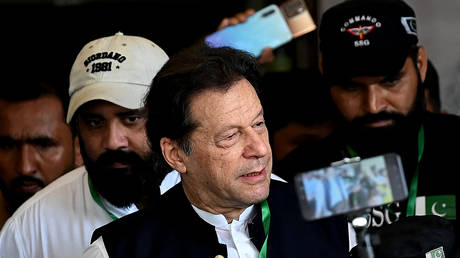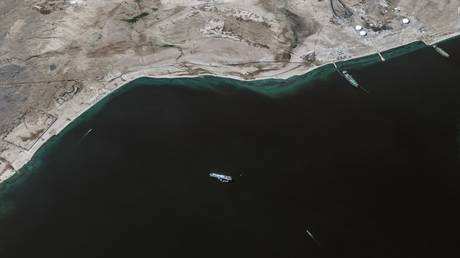The chancellor has called on parliament to bypass the national debt threshold for the sake of helping Kiev
Germany may have to declare an emergency at home in order to provide additional assistance to Kiev next year if the situation in Ukraine gets any worse, Chancellor Olaf Scholz warned in a government statement to the parliament on Wednesday. The opposition has branded his plan “financial trickery” and vowed to never let it happen.
Scholz’s coalition government has just reached a deal on its 2024 budget following weeks of tense negotiations. The cabinet agreed to keep existing debt restrictions while cutting the operational costs of various departments and slashing certain climate-related subsidies. Further military and financial aid to Kiev was still named as one of Berlin’s top priorities, alongside Germany’s green-economy transformation and the strengthening of social cohesion.
“I will advocate sustainable, reliable support for Ukraine, because it is about the security of Europe,” Scholz told the Lower House of parliament, the Bundestag. According to the chancellor, Berlin plans to spend €8 billion ($8.63 billion) on arms for Kiev next year, along with an unspecified amount of money allocated for financial aid to the Ukrainian budget, and another €6 billion ($6.47 billion) to support Ukrainian refugees living in Germany.
Read more 82% of Germans disapprove of government – poll
82% of Germans disapprove of government – poll
He also admitted that international support for Kiev was waning and might force Berlin to spend even more of its funds to aid Ukraine. Russia is supposedly counting on Kiev’s Western backers abandoning Ukraine, he added, and “the danger that calculation could work cannot be dismissed.”
“It is… clear that, if the situation worsens… because other supporters withdraw their aid, then we have to react to it,” Scholz explained, adding that doing so might require the government to trigger a special emergency clause and circumvent legislation on the national debt.
“We have already decided to propose a debt-brake exception resolution in the Bundestag” in case of such a development, the chancellor said. Enacted in 2009, a fiscal rule known as the ‘debt brake’ in Germany limits the national budget deficit to 0.35% of the GDP and restricts the issuance of new government bonds. A special clause still allows the government to bypass these restrictions in case of an “unforeseen emergency.”
Read more EU state will have to fight with stones – retired general
EU state will have to fight with stones – retired general
Scholz’s cabinet already faced what was called a “no-debt crisis” in November when the German constitutional court ruled its 2024 budget to be illegal due to violating this debt-brake rule and banned the government from repurposing unused Covid-19 funds.
The chancellor’s plan was blasted by the opposition as “financial trickery” as lawmakers accused him of essentially abusing the legal loopholes to push for more aid for Kiev. “What you have presented as an orderly procedure has been a tangible government crisis,” Friedrich Merz, the leader of the biggest opposition party, the Christian Democratic Union (CDU), said in response to Scholz.
“We won’t let this trick go through,” he added. The CDU chief also said that the situation in Ukraine was becoming increasingly “more dramatic.” “You know that, under the current circumstances, this country has no chance at all of winning this war,” he told Scholz.
Another prominent MP and a former transport and infrastructure minister, Alexander Dorbrindt, accused Scholz of being willing to literally throw the German budget into chaos for the sake of aiding Kiev. “You are not the solution to the budget problem, you are the budget chaos per se,” he told the chancellor, adding that the government “will never get our consent” to bypassing the debt-brake rule.

 1 year ago
193
1 year ago
193






 English (US) ·
English (US) ·